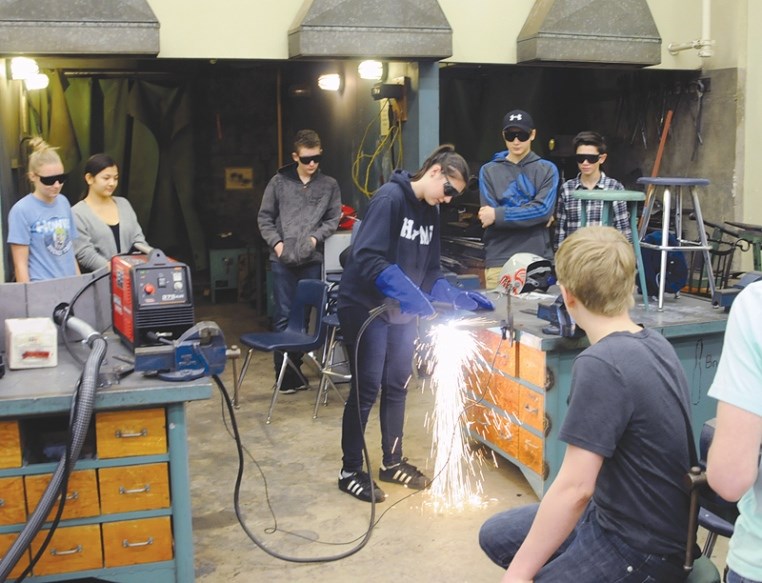High school students seem to be obsessed with graduation.
Parties, formal dress and limos are the topic of conversation among the kids. It’s fine to be excited about a big event but consideration must be given to the post-secondary years. Students will suddenly find themselves out of high school and in need of a plan.
For many families the answer is either university, college or get a job right away. And for lots of kids that’s a good answer.
But there are options that don’t seem to be on the radar for students or their parents: the trades.
Going into the trades is often seen as second best and it just isn’t. University or college training is perfect for some kids. They get an opportunity to explore the topic areas that interest them and discover new and exciting ways of looking at the world.
A 2016 survey of more than 2,800 former apprenticeship students in British Columbia demonstrated that the completion of trades apprenticeship training overwhelmingly leads students to well-paying jobs.
Survey highlights included: 97 per cent of former traditional apprenticeship students were in the labour force (employed or looking for work) in comparison to an 82 per cent labour force participation rate for the B.C. population.
Ninety-one per cent of former traditional apprenticeship students were employed and 98 per cent of employed former traditional apprenticeship students were working full time. And a growing number of young women are now filling jobs in the trades.
And you can’t ignore the long-term potential for advancement in the trades. A good glazier or electrician can become a foreman, then a superintendent, then a part-owner of the business. Virtually every company owner in the construction industry has their trades training ticket in his or her wallet.
It’s important to add this consideration to your discussions with your kids about post-secondary education. The trades should be as pertinent a part of the discussion as any other option.
The trick is to work with your teen to determine her interests and skills.
Talk to others who know your children. Their caregivers, grandparents, teachers or coaches will have noticed traits you may not have identified.
Simply paying attention works well. We get so busy with the day-to-day hustle and bustle of simply getting out of the house in the morning and homework, dinner and bedtime in the evening, that we miss just simply watching our kids.
If you want to identify your kids’ talents, pay particular attention to how they handle different situations and the choices they make. When does he seem happiest? When is he really focused and engaged?
Then listen to him. Take him out for lunch and ask him what he thinks he’s good at. What school subjects does he love or hate? What books does he like best? Why? What hobbies would he like to pursue? Let him talk and you simply listen. As he talks he may find himself discovering activities he wishes he could pursue. Or he may become aware of strengths he didn’t know he had.
Once you have identified strengths in your child pay attention and comment when you see a particularly unique behaviour. Is he good with his hands or does he like to talk about political strategy? Should she be an electrician or a political scientist? The trick is to note the positive qualities you have identified, not those you wish he had.
It’s important to consider the job opportunities that exist for your teen but you don’t want to make that the only reason for making a choice. That’s why being aware of post-secondary options as well as your child’s interests and abilities all play a part in helping him make a decision.
Let’s say your child learns that there are some good crane operator jobs available and decides to apprentice as a crane operator. But he would hate working alone and is not self-motivated. This just isn’t going to work for him. In order to thrive in the workplace, he needs to find a place where he would be part of a team.
Have your teen do her homework to find out what options are available. Then consider her interests and skills and help her make a good decision about her post-secondary years.
Kathy Lynn is a professional speaker and author of Vive la Différence, Who’s In Charge Anyway? and But Nobody Told Me I’d Ever Have to Leave Home. If you want to read more, sign up for her informational newsletter at parentingtoday.ca.



